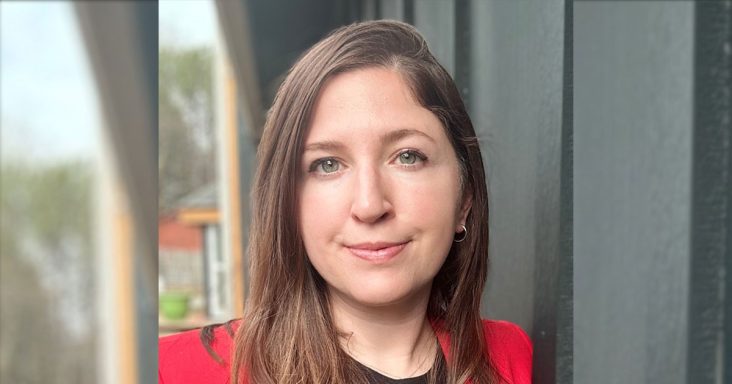Advice from Fayetteville entrepreneur Natalie Shew: fail fast, focus on customers
by March 5, 2024 1:49 pm 831 views

Natalie Shew
If you’re thinking of launching a business or navigating the initial challenges of entrepreneurship, receiving advice from someone with prior experience is invaluable.
Fayetteville entrepreneur Natalie Shew has been part of launching two health and wellness ventures in the past two years. It’s worth a listen when she shares insights from those experiences.
Shew is the founder and CEO of EmployWell, an early-stage workforce management platform that helps nurses work more efficiently by reducing administrative burdens.
She is also one of three co-founders of FemHealth Founders, a national women’s health innovation hub that aims to cultivate a more inclusive and supportive ecosystem for female founders of companies in the women’s health and wellness sector.
In a recent interview, Shew shared advice she thinks is essential for other founders.
“What I’ve [learned] from other founders I’ve gotten to watch and see [up close], who’ve done really well and been successful, is to fail fast and fail quickly,” she said. “Especially in the healthcare space. It’s different and unique. It’s a very complicated space to create change and innovation.”
An obsessive focus on the customer is Shew’s best advice.
“Focus on your customers and what they need and what they’re telling you they need,” she explained. “You can’t fix all their problems, but whatever you design and create needs to be focused on the customer and make them happy.”
Shew also repeated a point about the inevitable part of being a founder — failure.
“You will get things wrong,” she said. “But putting yourself in an environment where you can do that in a low-risk way will get you to a better product and better customer satisfaction.”
FROM CONCEPT TO CLINIC
In early February, Shew announced hiring fertility care administrator Robin Mangieri of Connecticut as EmployWell’s chief of clinic engagement. Mangieri is EmployWell’s third employee, working alongside Shew and chief operating officer Steffany Benton, a registered nurse and nurse practitioner living in Stuttgart.
Here’s the problem EmployWell is trying to address. Shew explained that the administrative burden cost on nurses is valued at $570 billion annually, driving nurses away from healthcare.
“We exist to help nurses work smarter, not harder,” Shew said. “Administrative burden is one of the top reasons that nurses are burning out and leaving the profession.”
Using artificial intelligence (AI) and natural language processing (NLP), EmployWell’s workflow assistant, Provider Ally, maps nurse workflows for specialty clinics and identifies administrative bottlenecks for better work satisfaction and productivity.
Like most early-stage startups, it is a small but mighty team. But Shew said EmployWell has clear goals for 2024.
“We’re in the pilot phase right now with a few Arkansas clinics to test our technology,” Shew said. “We don’t have any paying customers yet. We’re working on our first couple of contracts and are excited because some of our pilots, we believe, will turn into paying contracts. We’re getting a lot of good feedback from clinic administrators on the value our product can provide.”
Shew said the fertility space could potentially impact EmployWell’s growth the most because it’s proliferating.
“The fertility space is expanding and growing rapidly as more employers and insurance providers are covering those services,” she said. “You’re seeing a pretty big scale problem in servicing the demand out there. We must find ways to reduce the administrative waste and do more with less.”
Shew’s focus on EmployWell is personal. She started the venture because of her challenging experiences as a patient dealing with endometriosis and infertility.
“Nurses were simultaneously my lifeline and my biggest pain point while navigating my complex care journey,” she wrote in a blog post at getemploywell.com. “When I started peeling back the layers of who was responsible for my poor patient experience, it wasn’t my nurses — it was a broken system that unfairly overloaded nurses who are responsible for most of our direct patient care.”
Shew hopes to keep staffing up EmployWell, growing to five employees by the end of the year. A significant role is a full-time vice president of technology.
“That’s a missing link right now,” Shew said. “We have someone who’s helping us part-time build out our product. But that’s a big gap in moving our model from a tech-enabled services model to potentially a software-as-a-service model.”
